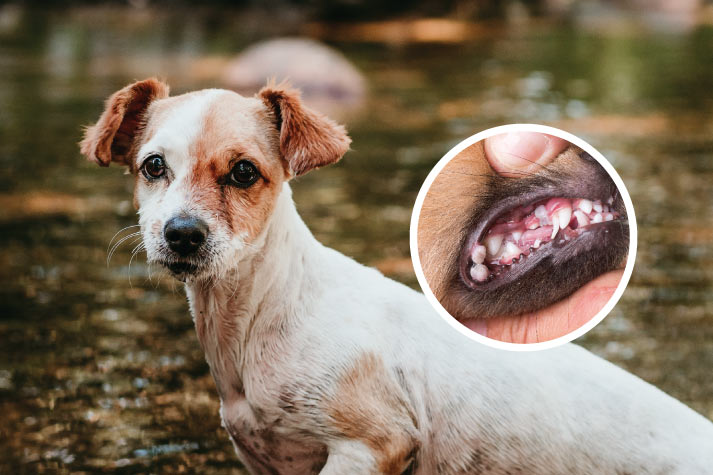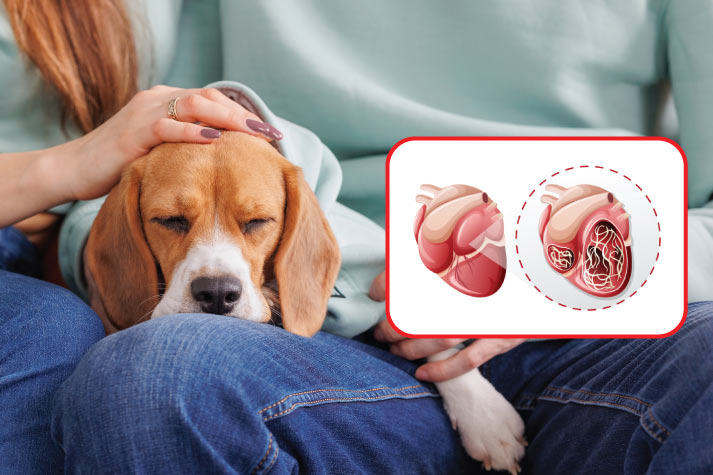
04 Apr
Leptospirosis in Young Dogs: Everything You Need to Know
Observing signs of illness in a young dog can be heartbreaking, especially when illness is accompanied by distressing symptoms like exhaustion, depression, or jaundice. Identifying the symptoms of the disease is crucial, as such symptoms usually point towards an illness known as leptospirosis. Such an infection is treatable, but pet owners must recognize the symptoms and administer treatment as soon as possible.
Here Is Everything a Dog Owner Should Know About Leptospirosis
What is Leptospirosis?
Leptospirosis is an infectious bacterial disease which affects a dog’s kidney and liver. It usually spreads through the urine of infected animals, and due to its zoonotic nature, it can spread to humans as well. It typically spreads through the urine of an infected animal; wild animals like deer, rats, or racoons are often infected with leptospirosis and urinate as they please. This infected urine contaminates the soil and the area around it, as bacteria can remain alive for longer durations if the soil is warm.
Dogs catch leptospirosis either through direct contact with infected and bacteria-ridden urine or through indirect contact with infected soil or area. The leptospirosis bacteria can also enter a dog’s system through openings, wounds, and cuts on the eyes, nose, and mouth. The bacteria attempt to enter your dog’s body and multiply before moving through the bloodstream.
If left untreated, leptospirosis can cause organ damage, organ failure, and even fatality, which is why it is important to recognize the symptoms of this infection and treat it promptly. Leptospirosis is also a disease which can often slip under the radar, as it isn't easy to detect thanks to the symptoms of the disease, which are shared by other diseases as well. If you notice any symptoms or a shift in your puppy’s behaviour, consult your vet immediately.
How Can I Identify Leptospirosis?
Since leptospirosis is an infectious disease that can develop quickly and lead to unwanted sickness and organ failure, it is important to be able to identify the symptoms of the disease in a young dog. Here are a few symptoms of leptospirosis in young dogs.
- Lethargy: Puppies are typically tiny bundles of energy, running about and jumping from place to place. However, leptospirosis lowers energy levels significantly, meaning you might notice a dramatic shift in your pup’s behaviour. Being tired, lethargic, depressed, losing their appetite, and disinterested in walks and playtime usually accompany the symptoms of lethargy.
- Jaundice: Jaundice causes the eyes and the areas around the mouth to turn white or pale yellow. The yellowed eyes are a primary indicator of jaundice and are a sign that your puppy may have contracted leptospirosis.
- Fever: Fever and vomiting may accompany jaundice, and chills or shivering is an indicator of your dog running a fever. Check your dog’s eyes for any redness or glossiness, as these are oftentimes indicators of leptospirosis as well.
- Diarrhoea: Diarrhoea may be observed as a symptom if your puppy is sick. Make sure to observe your pup's stool cycles and check if there is any blood present. Urine should be checked for any traces of blood as well. Be sure to look out for constant diarrhoea as well, as this will cause a loss of nutrients and dehydration in your pup and will require immediate medical attention, especially if other symptoms of illness are visible.
How is Leptospirosis in Young Dogs Diagnosed?
Contrary to popular belief, leptospirosis is not diagnosed using a blood test. There are two separate tests which are used to diagnose leptospirosis and confirm the presence of an infection. Both these tests are conducted by a licensed veterinarian and cannot be conducted by you at home.
- DNA-PCR tests are a rapid-test, which check for infection by looking for the DNA of the Leptospira bacteria in a urine sample. This test is cost-efficient and quicker than the MAT.
- MAT or Microscopic Agglutination Test checks for Leptospira antibodies in a dog’s bloodstream. The higher the number of antibodies, the easier it is to check and confirm the presence of the disease.
How Can Puppy Leptospirosis Be Treated?
We know that a sick puppy is a difficult sight to see. Fortunately, you can treat leptospirosis, with the treatment depending on the severity of the illness. Antibiotics are usually used to treat a sick puppy, as they act quickly and work on both the immediate infection and the infection as a carrier, meaning they will prevent the disease from spreading to others as a carrier.
Those dogs suffering from a serious case of infection may require hospitalisation. They will have IVs attached and other treatments given to them by the vet, which will keep them in a stable condition as they gradually fight the infection and regain their strength.
Visiting your vet is crucial for a condition like leptospirosis, especially if your pet is outdoors a lot or travels frequently. Pet travel requires a pet to be healthy and vaccinated, so make sure your dog’s vaccination schedule is completed before travelling, especially if you’re planning for international pet travel.
Puppy Owners Must Be Aware
As leptospirosis is a zoonotic disease (it can spread from animals to humans), pet dogs and especially puppy owners must exercise caution. Protective equipment such as masks, gloves, and goggles should be kept on hand if you suspect your puppy has an infection, as the infection can be dangerous if contracted by humans. Since this zoonotic disease is usually transmitted through the urine of disease-carrying animals, transmission is usually not likely and rare; however, if your dog catches the sickness or if you are an immunocompromised individual, you should take extra caution.
To conclude, leptospirosis is an infectious disease that can cause harm to a puppy. Since its symptoms are symptoms of other illnesses as well, it requires a vet’s attention if you spot any symptoms. It is always better to be safe than sorry, so consult your vet if you notice your puppy acting strange. Taking preventive measures like restricting your puppy from interacting with water bodies/soil and timely vet visits are a sure way of ensuring you and your puppy stay healthy. Make sure to get your pet examined if you suspect illness or if you’re planning for pet travel; provided you consult your vet, follow your pet’s vaccination schedule, and avoid unknown water bodies, you should have no trouble keeping your pet healthy.






AUTHOR’S BIO
Carry My Pet
Passionate pet enthusiasts and globetrotters, dedicated to easing furry friends' journeys worldwide. Penning tales of compassion at CarryMyPet, where every relocation is a tail-wagging adventure.